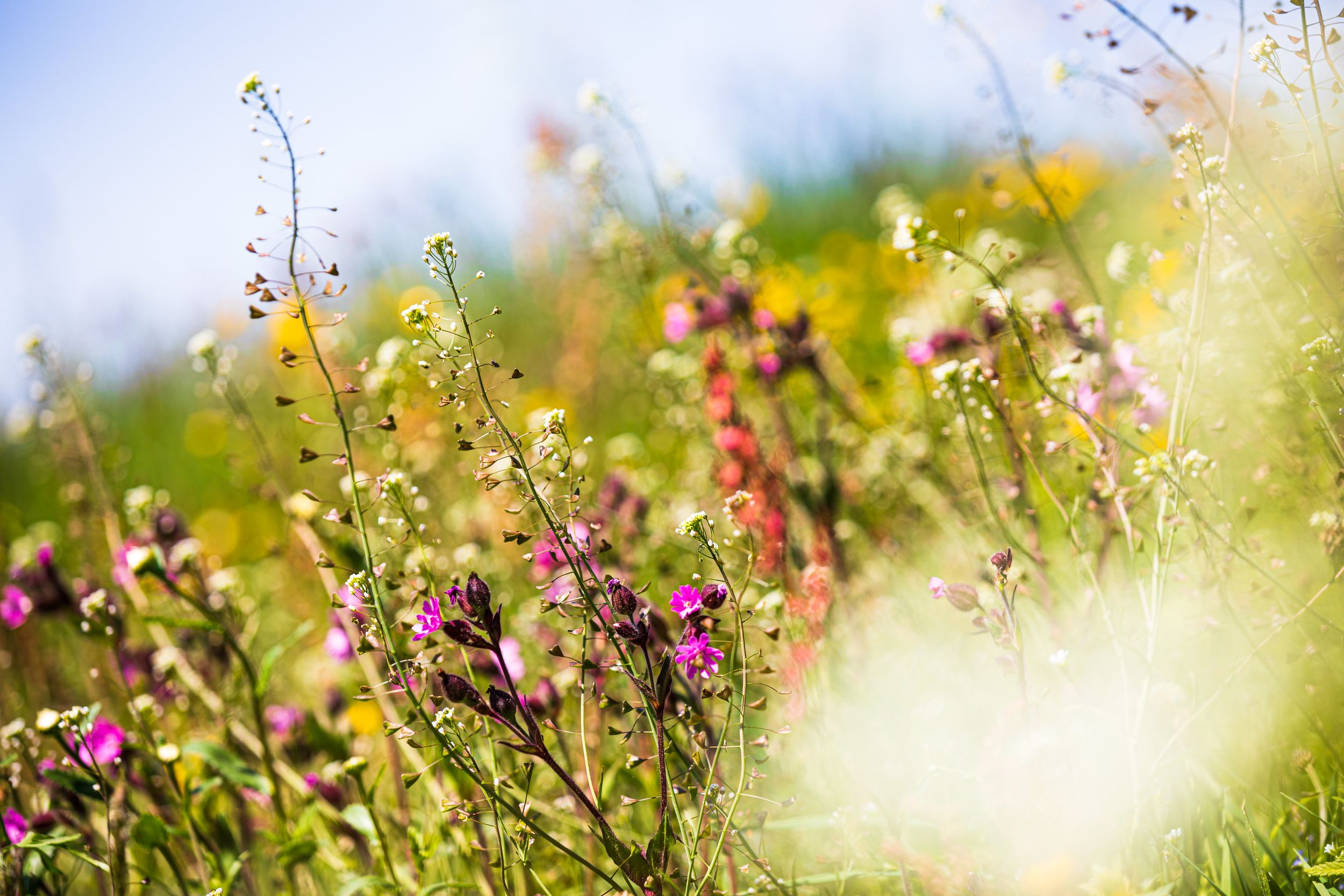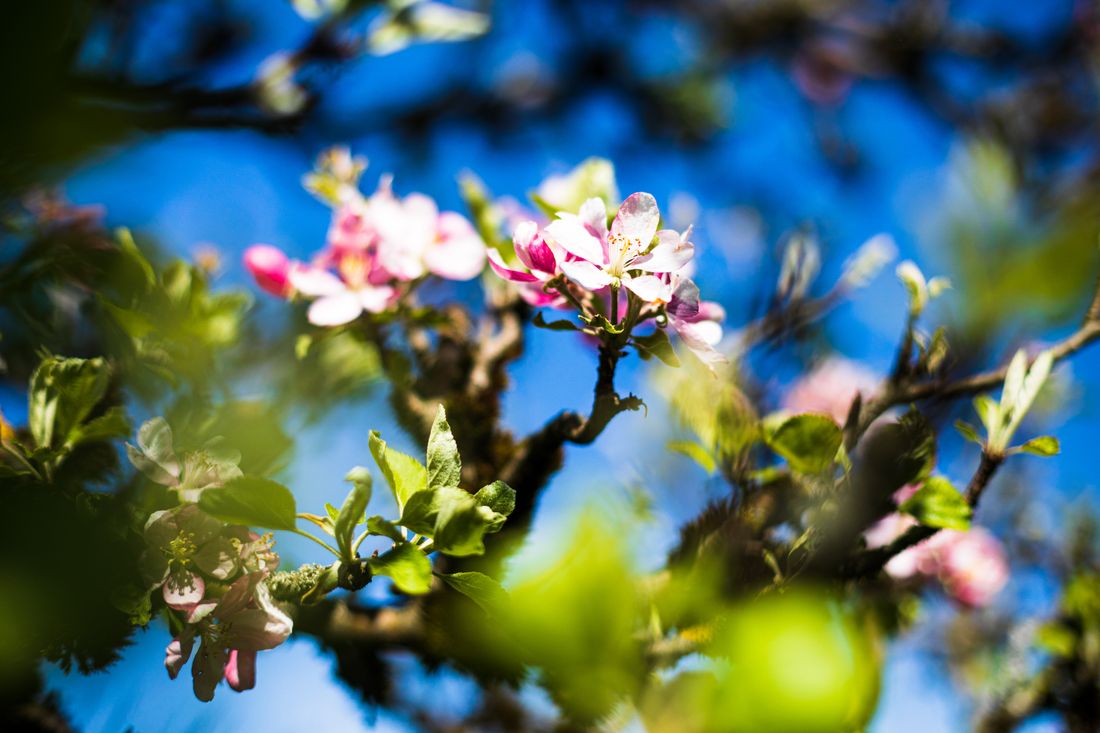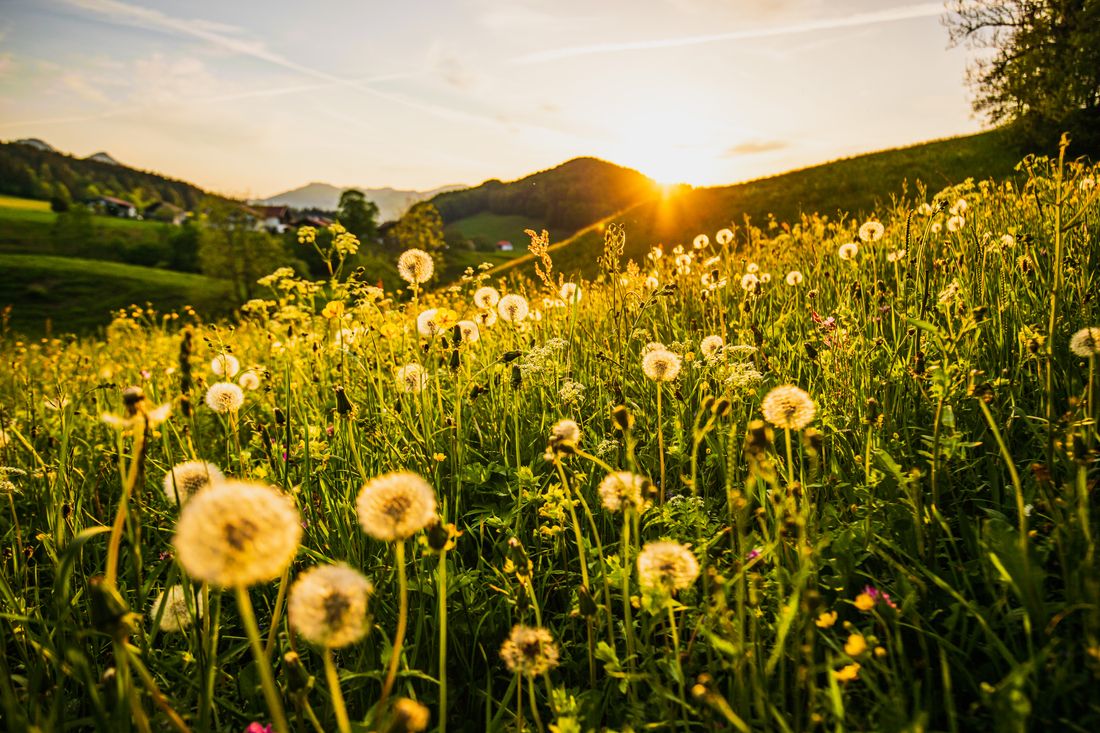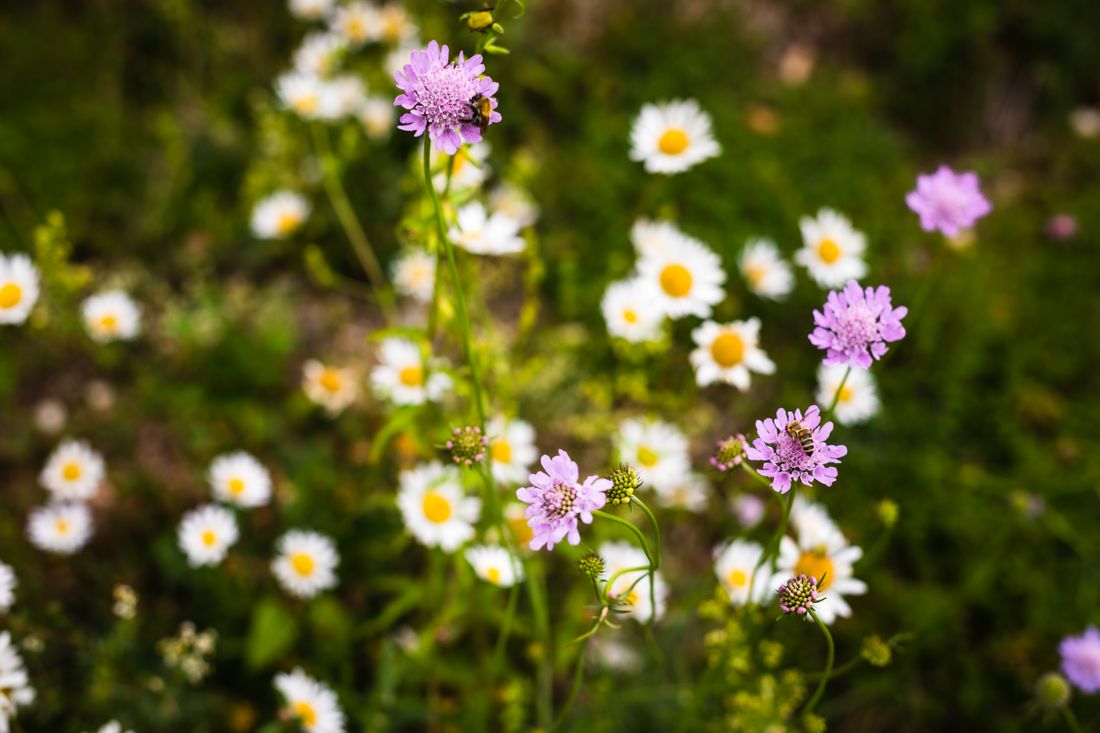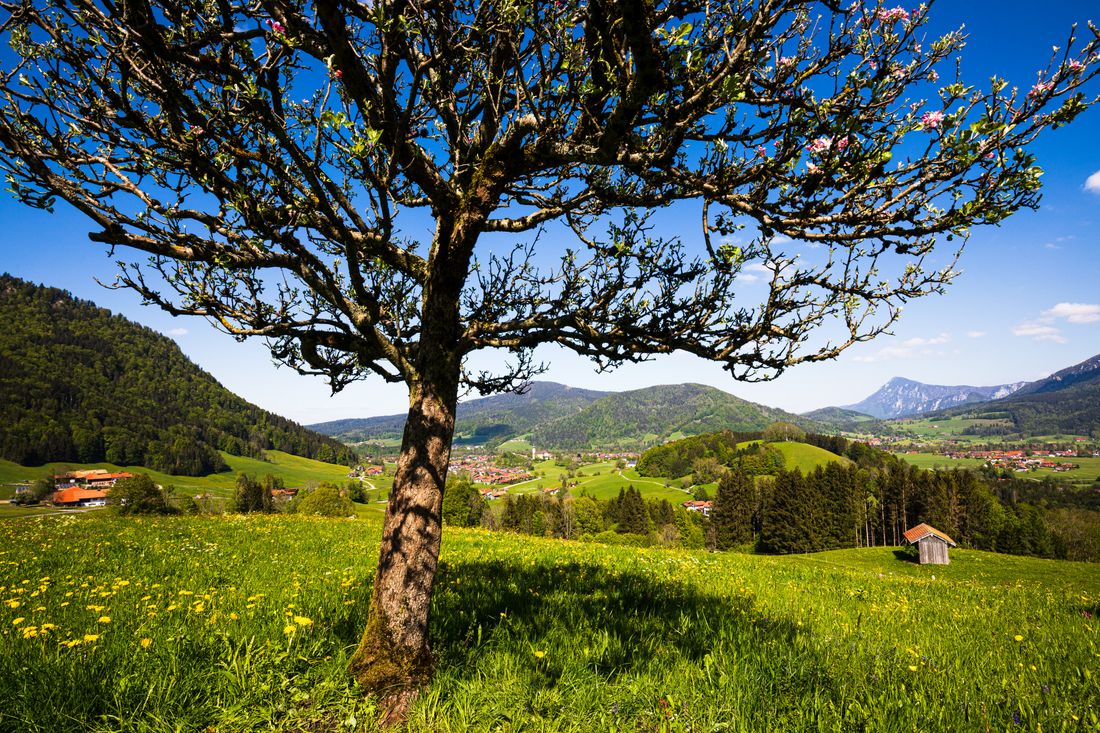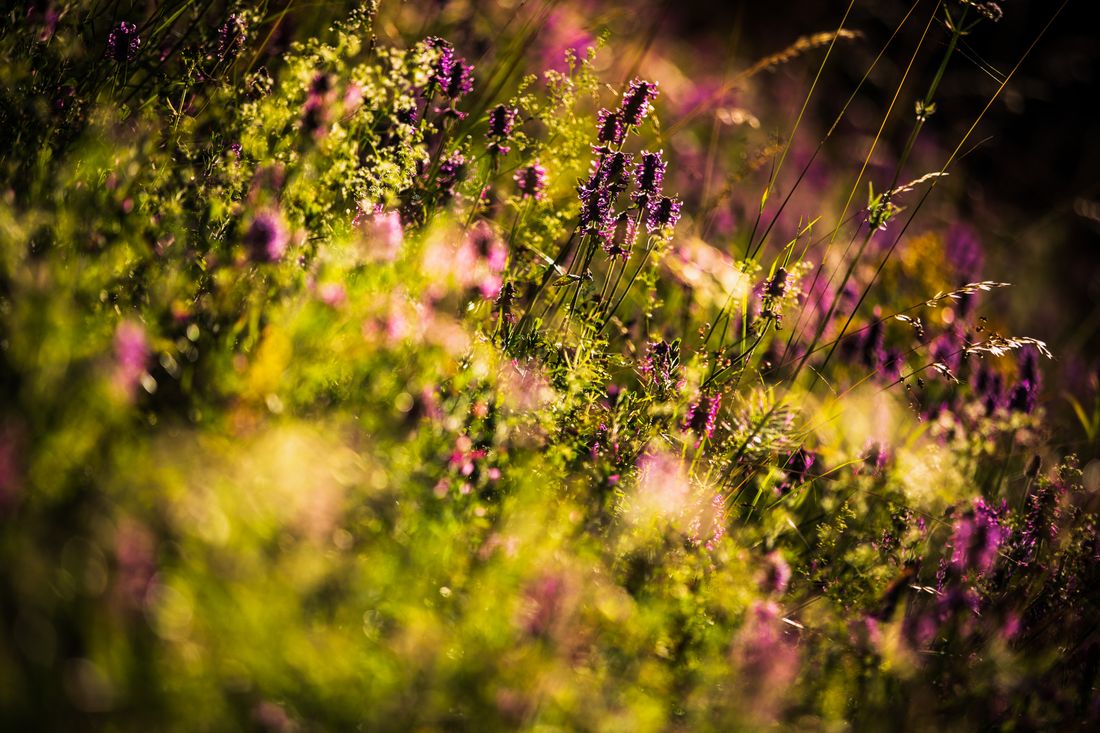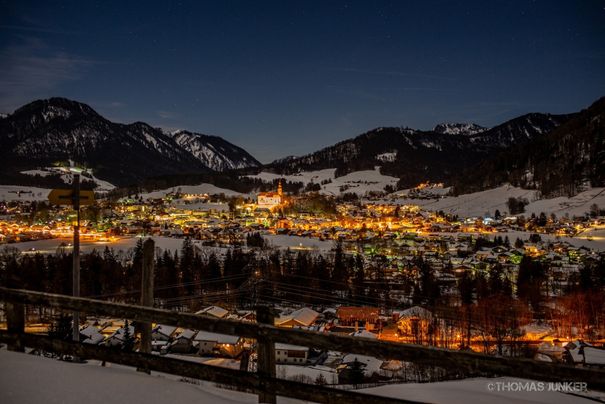About 300 hectares of meadows are extensively and sustainably used in Ruhpolding. 55 hectares of these are so-called litter meadows, wet meadows and grasslands. Their diversity and phased flowering make them valuable habitats. Up to 100 plant species can thrive on a square metre.
This means extensive grassland, like the one at the Bojernhof, is one of the most biodiverse biotopes in the world alongside the tropical rainforest. It is particularly worth protecting because the great majority of land in Germany is used intensively and industrially, often to the detriment of soils, plants and animals.
"We are mountain farmers, we farm very different land and mountain pastures than the farmers in the lowlands," says Thomas Christofori. Now in the early evening, the July heat has abated significantly and there are hardly even any insects about. Because the weather forecast for the coming days is dry with stable high-pressure weather, he wants to mow the steep meadow below the farmhouse, the "Leitn". To do this, he uses a motor mower, similar to a large lawnmower with an attached cutter bar. Thomas has to drive it manually fromright to left and from top to bottom over the mountainside. It's hard, exhausting work. He has to take good care not to slip. Tomorrow night, the grass will be completely turned using a rake, so that it dries out well. If it’s gathered up while it’s still damp, there is the risk that it will fester. In the worst-case scenario, it could even start to burn.
